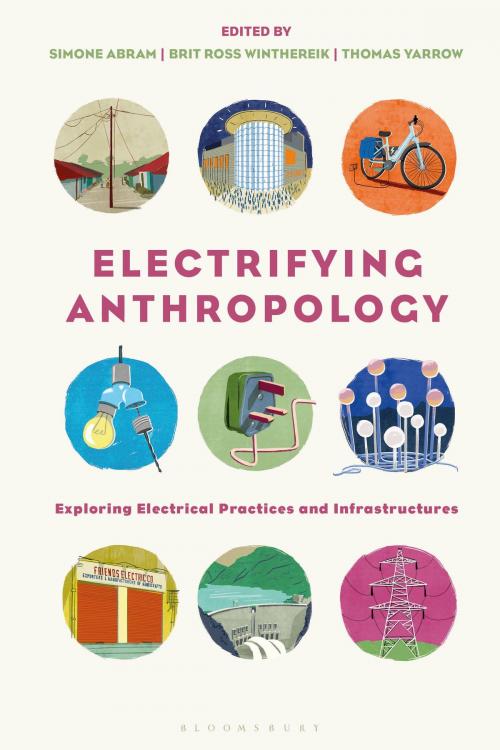Electrifying Anthropology
Exploring Electrical Practices and Infrastructures
Nonfiction, Social & Cultural Studies, Social Science, Anthropology, Science & Nature, Science| Author: | ISBN: | 9781350102651 | |
| Publisher: | Bloomsbury Publishing | Publication: | June 27, 2019 |
| Imprint: | Bloomsbury Academic | Language: | English |
| Author: | |
| ISBN: | 9781350102651 |
| Publisher: | Bloomsbury Publishing |
| Publication: | June 27, 2019 |
| Imprint: | Bloomsbury Academic |
| Language: | English |
What kinds of expertise and knowledge relate to electricity, and where is the space for alternative voices? How can the new roles for electricity in social and cultural life be acknowledged? How can we speak about 'it' in its own right while acknowledging that electricity is not one thing?
This book re-describes electricity and its infrastructures using insights from anthropology and science and technology studies, raising fascinating questions about the contemporary world and its future. Through ethnographic studies of bulbs, bicycles, dams, power grids and much more, the contributors shed light on practices that are often overlooked, showing how electricity is enacted in multiple ways. Electrifying Anthropology moves beyond the idea of electricity as an immovable force, and instead offers a set of potential trajectories for thinking about electricity and its effects in contemporary society.
With new contributions on an emerging area of research, this timely collection will be of value to students and scholars of anthropology, science and technology studies, geography and engineering.
What kinds of expertise and knowledge relate to electricity, and where is the space for alternative voices? How can the new roles for electricity in social and cultural life be acknowledged? How can we speak about 'it' in its own right while acknowledging that electricity is not one thing?
This book re-describes electricity and its infrastructures using insights from anthropology and science and technology studies, raising fascinating questions about the contemporary world and its future. Through ethnographic studies of bulbs, bicycles, dams, power grids and much more, the contributors shed light on practices that are often overlooked, showing how electricity is enacted in multiple ways. Electrifying Anthropology moves beyond the idea of electricity as an immovable force, and instead offers a set of potential trajectories for thinking about electricity and its effects in contemporary society.
With new contributions on an emerging area of research, this timely collection will be of value to students and scholars of anthropology, science and technology studies, geography and engineering.















